- Home
- Treatment
Treatment Designed for You.
Get in touch with Absolute Awakenings today and begin your journey to long-term healing & recovery. - What We Treat
An Experience in Healing
Get in touch with Absolute Awakenings today and begin your journey to long-term healing & recovery. - About
The Rehab You've Been Looking For
Get in touch with Absolute Awakenings today and begin your journey to long-term healing & recovery. - Tour
- Resources
Don't Wait Another Day.
Get in touch with Absolute Awakenings today and begin your journey to long-term healing & recovery. - Admissions
The Rehab You've Been Looking For
Get in touch with Absolute Awakenings today and begin your journey to long-term healing & recovery. - Contact
(866) 627-0196
3000 NJ-10, Morris Plains, NJ 07950
admissions@absoluteawakenings.com
Schedule a Tour Now
Get in touch with Absolute Awakenings today and begin your journey to long-term healing & recovery.
Begin Your Journey Now
Begin Your Journey Now
- Home
- Treatment
Treatment Designed for You.
Get in touch with Absolute Awakenings today and begin your journey to long-term healing & recovery. - What We Treat
An Experience in Healing
Get in touch with Absolute Awakenings today and begin your journey to long-term healing & recovery. - About
The Rehab You've Been Looking For
Get in touch with Absolute Awakenings today and begin your journey to long-term healing & recovery. - Tour
- Resources
Don't Wait Another Day.
Get in touch with Absolute Awakenings today and begin your journey to long-term healing & recovery. - Admissions
The Rehab You've Been Looking For
Get in touch with Absolute Awakenings today and begin your journey to long-term healing & recovery. - Contact
(866) 627-0196
3000 NJ-10, Morris Plains, NJ 07950
admissions@absoluteawakenings.com
Schedule a Tour Now
Get in touch with Absolute Awakenings today and begin your journey to long-term healing & recovery.
Invest in Your Recovery
Recovery Capital
- Written By: Amanda Stevens, B.S.
- Reviewed By: Dr. Po-Chang Hsu, M.D., M.S.
- Updated:
- Published:
- Reading Time: 6 minutes
Your Addiction Recovery Journey Requires Intention, Action, and Support
Putting Value on Your Path to Recovery
Recovery Capital
When you’re in the thick of drug problems or alcohol addiction, you may long for a “normal” life. A life that is less chaotic and more productive. You may think to yourself, “If I could just kick this dependence…”. The reality is rehab gives you the tools necessary to cope with everyday challenges, but it does not eliminate them.
That’s why here at Absolute Awakenings, we emphasize the importance of developing recovery capital in your path forward to mental health and sustained recovery.
Addiction Treatment in New Jersey
Our Services
Detox Placement
Residential Inpatient
Partial Hospitalization
Intensive Outpatient
Outpatient Program
Aftercare & Alumni
Understanding Addiction Recovery
What is Recovery Capital?
Recovery Capital is the range and depth of internal and external resources available to a person in the recovery process that contributes to lasting success in their post-addiction life after substance abuse treatment. This may look like access to education, vocational training, resume building, job interview preparation, public transportation, as well as safe, recovery-oriented housing options with support groups.
Research indicates that recovery capital may be a critical predictor of one’s long-term recovery success, quality of life, and stress level. There are also parallels between recovery capital and natural recovery, solution-focused therapy, strengths-based case management, recovery management, and ideas of resilience and holistic health.
Recovery capital provides the means to create a productive and peaceful life once treatment has ended.
The Types of Recovery Capital
Recovery capital is a multi-faceted concept that addresses the various aspects of one’s life. Studies have shown that environmental factors are more impactful to recovery success than short-term interventions, and different elements of recovery capital will hold more importance at various stages of recovery.
According to research by William White and William Cloud in “Coming Clean: Overcoming Addiction Without Treatment,” personal recovery capital pertains to factors directly impacting the individual. These can be divided into physical and human capital[5]. Physical recovery capital includes one’s physical health, finances, health insurance and healthcare, shelter, clothing, food, and transportation. Human recovery capital pertains to one’s values and beliefs, education, vocational skills, and credentials. Also included are a person’s coping skills, self-esteem, interpersonal skills, problem-solving skills, resilience, communication efficacy, self-awareness, and sense of meaning.
Family and social recovery capital have to do with one’s family, friends, intimate relationships, and other social relationships within their social network. It is determined by the willingness of loved ones to contribute to social support for one’s treatment services and long-term recovery. Other indications include the presence of others in recovery, sobriety-based leisure activities, and involvement with institutions like schools, workplaces, and churches].
Encompassing community recovery capital and cultural recovery capital are societal attitudes, government policies, and community resources related to addiction and rehabilitation that help prevent relapse. Community-based capital and systems of care may look like efforts to reduce harmful stigmas around drug use and alcohol use, opportunities for suitable careers, and sustained recovery support.
Cultural capital concerns the availability of culturally specific recovery support options such as program specific to one’s ethnicity, sexual orientation, religion, etc.
How Absolute Awakenings Approach Can Help
Why is Recovery Capital Important?
Recovery capital is vital to sustained recovery because it provides the resources necessary to lead a life of purpose, direction, and meaning. The more recovery capital one can accrue, the greater their chances are of long-term remission. Lower biological, psychological, and social stress means a reduced likelihood for relapse and better quality of life. Absolute Awakenings Treatment Center provides clients access to providers and resources that will build their recovery capital so they’re supported for a lifetime.
We Accept With Most Major Insurance
If you or a loved one is ready to get help but finances are holding you back, give us a call. We can work with your health insurance provider.







Stories of Hope & Healing
Hear from Our Alumni
A jewel among many local drug and alcohol rehab treatment centers in Denville, New Jersey, the care and treatment options you’ll receive at Absolute Awakenings is second to none. From not knowing if you’ll ever feel in control again to being confident in the path you’re on, we are invested in YOU every step of the way.
Begin Your Path to Healing
Learn More About Recovery Capital in New Jersey
Absolute Awakenings Treatment Center
Facility Address
- 3000 NJ-10, Morris Plains New Jersey 07950
Start Your Journey
Begin Your Journey to Long-Term Healing
Lasting Change is a Simple Click Away.
Yes, You Can Get Your Life Back...
With our trained and compassionate professionals in your corner, freedom can be yours. All it takes is you choose yourself. Choosing a better tomorrow.
Recovery is waiting for you...
Begin Building Your Recovery Capital at Absolute Awakenings of New Jersey
Freedom From Addiction Starts Today
Recovery capital gives you the best chance of a changed life after addiction treatment. At Absolute Awakenings, we recognize the importance of making practical resources available, and will do everything in our power to set you up for lasting success with addiction recovery.
Answers to Common Questions About Recovery Capital
Recovery Capital FAQs
The 5 key principles of recovery include:
Integrity – honesty about yourself
Compassion – love and understanding to yourself
Growth – commitment to improvement
Agency – self-responsibility
Self-trust – leaning into your intuition and self-awareness
The 6 stages of recovery include:
Transition – recognizing one’s addiction
Stabilization – initial relief from withdrawal symptoms
Early recovery – reframing one’s mindset
Middle recovery – creating a new set of habits and lifestyle
Late recovery – continual management of habits and behaviors
Maintenance – choosing growth and a complete new set of thoughts and patterns
While initial detox from drugs and alcohol substance use disorder typically lasts from 3-7 days, addiction recovery is a lifelong journey that is inevitable to have many ups and downs.
This is highly dependent on the type of substance(s) abused and the duration of use, however timelines can range from two weeks to 14 months.
© Copyright 2024. All Rights Reserved. AATC.
- Terms & Conditions
- Privacy Policy



